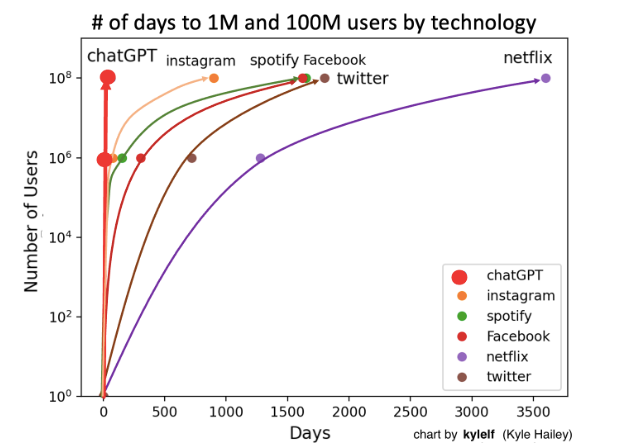Is Google Dead?
A page from Clayton Christensen’s playbook might get you thinking!
Clayton Christensen is a well-known management theorist who has written extensively on innovation and disruption. According to Christensen, defending a business by focusing on improving existing products and processes, rather than disrupting the industry with new innovations, can be the beginning of the end for that company.
Christensen argues that companies that focus too much on defending their existing business models and products can become too inward-looking and risk-averse. They may miss important changes in the market or new opportunities for innovation, which can leave them vulnerable to disruptive new entrants. In contrast, companies that focus on disrupting their industry with new products or business models are more likely to stay ahead of the curve and maintain their competitive advantage. Here’s the idea directly from the website:
Disruptive innovation describes a process by which a product or service takes root initially in simple applications at the bottom of a market and then relentlessly moves up market, eventually displacing established competitors.
To illustrate this point, Christensen often uses the example of the disk drive industry. In the 1980s, established companies in the industry focused on defending their existing product lines by improving performance and reducing costs. However, they failed to recognize the potential of smaller, more nimble companies that were developing new disruptive technologies, such as solid-state drives. As a result, many of these established companies eventually went bankrupt or were acquired by competitors.
Is OpenAI’s GPT at the heart of this story? And has the amazing introduction of ChatGPT and its incorporation into Microsoft’s Bing search engine created the “writing on the wall” that Christiansen defines? Perhaps so. But the whisper (or whimper) of Bard might suggest that the game is just beginning and far from over.

Of course, Google isn’t playing dead, only acting dead. It’s dominate position in search contrasted by Bing’s position at the bottom of the market does set up the disruptor scenario—particularly with ChatGPT as the catalyst for change. Ultimately, the success of a search engine depends on its ability to deliver accurate and relevant search results, and it’s difficult to say whether Bing can consistently outperform Google in this area. And for that matter, if GPT will emerge as a reliable source.
And not to be outdone, Meta has joined in with its large language model called LLaMa. (How do you pronounce that?) The new model, according to CNBS is intended to help scientists and engineers explore applications for AI such as answering questions and summarizing documents.
But wait, there something else. Google might have another card up its sleeve. Just reported in Nature today, Google has made significant advances in its world with quantum computing.
Physicists at Google have reached what they describe as their second milestone along the path to a useful quantum computer. At a laboratory in Santa Barbara, California, they have demonstrated that they can lower the error rate of calculations by making their quantum code bigger.
Christensen’s theory suggests that companies should be constantly looking for new opportunities to disrupt their industries, rather than simply defending their existing business models. This means being open to new ideas, investing in innovation, and taking risks. Companies that are too focused on maintaining the status quo are likely to fall behind and eventually fail. Today, we can Google that insight. But tomorrow, all bets are off.
